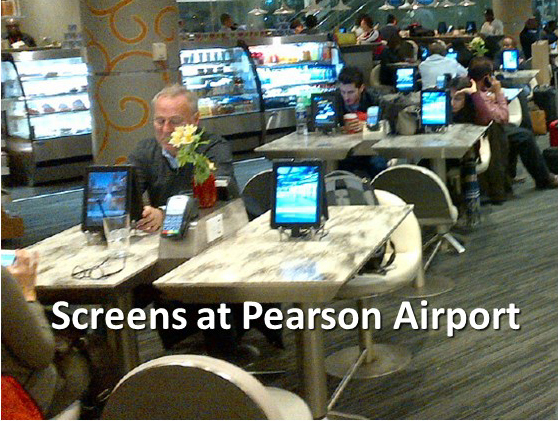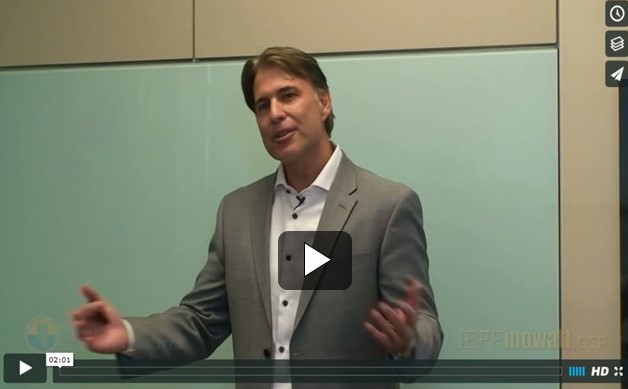Dealing with Wealthy Customers – Five strategies for boosting your business with high net worth clients
Ever notice that sometimes folks act differently around wealthy people? I think it’s because (whether we admit it or not) most of us want rich people to like and accept us. After all, it’s not a bad thing when high net worth individuals want to do business with you. The problem I’ve noticed as a customer service strategist, is that sometimes when employees interact with customers who they perceive to be of higher status, they try too hard to impress. Or at the other extreme, some employees become too submissive ie. a doormat. Here are five strategies for building stronger relationships with high net worth customers. (Oh, and they happen to also work with the rest of your customers as well).
1. Get clear about your status
There’s no upside to acting either superior or inferior to your customers. If you act superior, you come across as arrogant and customers won’t like you. If you act inferior, you’ll be perceived as obsequious and customers won’t respect you. Better to put yourself at the same status as your customers. As they say at the Ritz Carlton, “We are ladies and gentlemen serving ladies and gentlemen.”
The question is, what’s the relationship that customers value most with service providers? I’ll tell you what it’s not. Your relationship goal is not to become your customer’s friend. Your customers already have their own friends – and they’re free. What customers value is a service provider who they regard as their Trusted Advisor. Customers will pay a premium (and show more respect) when dealing with a trusted advisor.
2. Earn early respect
When I’m conducting seminars for organizations whose customers are sometimes demanding, rushed, or frustrated, we talk about the importance of earning early respect. That means if a customer is trying to talk with you while chatting on their cellphone, it’s best to smile and respond with, “I’ll take care of you as soon as you’re finished your call.” If a customer asks you a question while staring down at their paperwork, don’t answer their question. Instead, wait till they actually look you in the eye, then say “Hello. Yes, I can help you with that.” By waiting until you have the person’s undivided attention, you convey that you are a human – not a doormat – who is worthy of respect. Customers are happier dealing with employees who earn their respect. Everyone wins.
3. Prove you're somebody
In general, when you introduce yourself to customers, share your first and last name. Often we just tell people our first name because we are being casual – like friends, right? But remember, you’re not trying to be your customer’s pal, you want to be seen as their trusted advisor. More importantly when you share your last name, you instantly convey the message, “If you have a question or concern you should ask for me (which is why I’m giving my full name). I’m not trying to hide or be anonymous. I’m comfortable being held accountable.” All by simply using first and last names. Easy and powerful.
4. Listen more. Talk Less
Perhaps the quickest way to turn-off customers is talking too much. Or talking when we should be listening. When listening, try to understand what lies beneath the customer’s surface request. The more you demonstrate that you understand your customer’s unexpressed and eventual needs, the more you’ll be seen as a trusted advisor.
5. Be the go-to person
Customers sometimes have requests that don’t fall neatly into your existing procedures. So, you may have to check with a senior manager. When you’re in that position, do not tell your customer, “I’ll have to go ask my manager.” That makes the customer feel like they’re wasting their time dealing with you. It makes you look like you haven’t been adequately trained or trusted. And it makes your manager look like a micro-manager. Instead, tell the customer, “Let me look into this and see what I can come up with for you.” That’s right, I’m encouraging you to take the credit for the decision. That reflects more positively on everyone, including your manager.
Bottom line
Interestingly, dealing with high net worth clients is the same as dealing with any other customer. Everyone – including you and your team members – deserves respect and attention. Beyond these tips, the most important way to earn your customers’ trust and loyalty is to keep your promises; no matter what it costs you. That’s of course why we call it becoming a trusted advisor.
Anticipate and satisfy the NEXT need
 They used to say in Victorian England that good butlers do not respond to requests. Instead, they anticipate their employers’ needs and fulfill them so employers don’t need to ask. Today, the principle of anticipating needs – while the rest of the planet becomes increasingly focused on filling orders – is more important than ever in differentiating your service. An electrician for example, while looking at the wiring plan for a home renovation, suggests also installing lights in high use closets that activate when the closet door opens and closes. A hair stylist suggests a style that the client can easily recreate at home. An executive assistant briefs his supervisor on background info about the client for the supervisor’s upcoming meeting. In short, to be seen as a Trusted Advisor, you need to continually demonstrate that you’re focused on your customers’ and coworkers’ strategic needs; not just their immediate requests.
They used to say in Victorian England that good butlers do not respond to requests. Instead, they anticipate their employers’ needs and fulfill them so employers don’t need to ask. Today, the principle of anticipating needs – while the rest of the planet becomes increasingly focused on filling orders – is more important than ever in differentiating your service. An electrician for example, while looking at the wiring plan for a home renovation, suggests also installing lights in high use closets that activate when the closet door opens and closes. A hair stylist suggests a style that the client can easily recreate at home. An executive assistant briefs his supervisor on background info about the client for the supervisor’s upcoming meeting. In short, to be seen as a Trusted Advisor, you need to continually demonstrate that you’re focused on your customers’ and coworkers’ strategic needs; not just their immediate requests.
Listening as a trusted advisor vs friend
Listening as a trusted advisor vs friend
Getting your Staff to Get Along
3 common teambuilding approaches - and why they don't work
“I can accept it when one of my employees makes a mistake. What I don’t have patience for is when my employees don’t play well with one another.” This was a client, a business owner with 45 employees, who explained, “When there’s a problem with a customer, employees focus more on blaming other departments and covering their own backsides than stepping-up to help each other to resolve the problem. We need a stronger commitment to teamwork.”
Over the many years that I’ve helped teams to strengthen trust with their customers and co-workers, I’ve discovered that typical approaches to enhancing teamwork not only don’t work - they’re actually counterproductive. Here are three common approaches to strengthening teamwork, and why you should take a different approach to building stronger bonds within your team.
1. Forced socializing
Employers often assume that staff will build stronger bonds by getting to know each other better socially. So once or twice a year they host a company picnic or seasonal dinner. These events may be great for social butterflies, but they’re agony for introverts. Ironically, we might assume that people who appear to be socially at ease must be extroverts. Surprisingly, if you were to ask these same people how they would describe themselves, significant numbers would say they are introverts. Maybe you’re one of them. If so, you’ve probably learned how to appear socially comfortable at large gatherings although in reality you find them awkward. At a forced social event like a company-wide dinner, people tend to sit with workplace friends (so they don’t have to work so hard at small talk). Meanwhile, shy ones will be wondering how soon they can leave without being rude.
Unless you enforce a seating plan at the company Christmas party (which everyone would resent) cliques will be reinforced. Some people will feel excluded since they’re not at the cool table. If there’s alcohol, some may overindulge to reduce their anxiety; leading to other problems. Typically, these events aren’t cheap. If your real goal is to reward employees (as opposed to building teamwork), ask everyone if they’d prefer to either a) have a pizza lunch brought in several times a year (with no alcohol) or b) have one fancy sit-down dinner in December. I guarantee pizza will win. Managers are wise to think of company supplied meals as the perks they are – but not as team builders.
2. Obstacle courses
A more novel approach to enhancing teamwork is to take the staff off-site for a “team building event”, such as an obstacle course, paint-ball battleground, or fire-walk. The theory is that since people will be making group-decisions under pressure, there will be lessons in group dynamics and overcoming obstacles. The reality is for some people these lessons are more than offset by the shame and resentment they feel because they lack physical prowess, or because they appear to be overly timid. Unless your business actually requires your staff to walk on hot coals at their jobs, the whole exercise will have no bearing on whether the sales department blames the service department when customers have a complaint. I suggest you skip these types of activities; not only saving money, but also the risk and liability of staff being injured.
3. Sensitivity Training
There are a plethora of courses to train employees on how to be more inclusive and more aware of how their words and actions may inadvertently offend others. These are indeed worthwhile; particularly where you’ve had incidents of workplace bullying or harassment. What these courses won’t do however, is get to the core of why certain employees don’t understand that their coworkers are in fact their (internal) customers; and treat them as such.
The solution - focus on the real goal
On a men’s pro hockey team, imagine the potential that exists among teammates for rivalries and conflicts. These gifted athletes have learned from boyhood that they are (physically at least) superior. They are wealthy, admired, and naturally want to be the team’s shining star. When they play on opposite teams, a single offhand remark can literally lead to fisticuffs. Yet when they play on the same team, these individuals set their differences (and their potentially massive egos) aside, because they all share a common purpose – to win games.
Similarly in your workplace, when employees are so focused on achieving their goal – delighting internal and external customers - they no longer have time to be distracted by minor interpersonal issues. As they say in Texas, a dog on the hunt doesn’t know it has fleas.
Trying to enhance teamwork is like trying to fall asleep. You can’t (and shouldn’t) force it. Teamwork is not a goal – it is a bi-product of your organization creating a culture that is obsessed with delighting customers. You end up with devoted customers and reduced conflicts. That means increased financial security and ultimately, better returns for everyone including employees. The bonus of cultivating a customer-focused culture is employees won’t have the time or attention to bother with the proverbial fleas of interpersonal pettiness. The bottom line is this - managers achieve a more motivated and cooperative workforce when they focus less on teamwork itself, and more on delighting customers and coworkers.
Two phrases to enhance trust
 Some people assume the best way to impress others is to say the right things. Ironically, people are more drawn to you when you’re seen less as a smooth talker, and more as a strong listener. In this video on humility and listening skills, you’ll discover two phrases that help prove to others that you are indeed worthy of their trust.
Some people assume the best way to impress others is to say the right things. Ironically, people are more drawn to you when you’re seen less as a smooth talker, and more as a strong listener. In this video on humility and listening skills, you’ll discover two phrases that help prove to others that you are indeed worthy of their trust.
Three words to calm customers and boost your business
Here’s a simple way to create a more positive impression the next time a customer or co-worker requests something, Don’t respond with the typical: Ok, I’ll handle it, I’ll deal with it, etc. Instead, tell the person you’ll take care of it. Consider the difference… while each phrase indicates you’ll comply, with the preferred wording you also convey that you’ll do so with caring. Telling someone you’ll deal with an issue makes it sound like an ordeal. Saying instead you’ll take care of something implies you’re a guardian who will guide the request to completion. You can use this same phrase to offer additional services: “Would it be helpful if we also took care of this other issue for you?” Those three words – take care of - make it easier for customers to feel good about doing more business with you.
They’re Everyone’s Customer
 A client of mine, a senior manager of a mid-sized company, explained to me, “Many employees are fixated on their own jobs and not focused enough on the customer.” As an example he shared, “A customer may walk from the equipment yard to the showroom, to the repair shop; passing within eyeshot of a dozen employees. If they aren’t directly in sales for that specific area, they seem to believe it’s not their job to talk to that customer or offer to help.” Later, in my seminar for all staff, we talked about when customers defect because they feel ignored, how it impacts everyone’s job security. The lesson is there’s no room for anyone adopting the attitude of, “It’s not my customer.” Or, “It’s not my problem if another department drops the ball.” Instead, people who phone-in or visit are everyone’s customer.
A client of mine, a senior manager of a mid-sized company, explained to me, “Many employees are fixated on their own jobs and not focused enough on the customer.” As an example he shared, “A customer may walk from the equipment yard to the showroom, to the repair shop; passing within eyeshot of a dozen employees. If they aren’t directly in sales for that specific area, they seem to believe it’s not their job to talk to that customer or offer to help.” Later, in my seminar for all staff, we talked about when customers defect because they feel ignored, how it impacts everyone’s job security. The lesson is there’s no room for anyone adopting the attitude of, “It’s not my customer.” Or, “It’s not my problem if another department drops the ball.” Instead, people who phone-in or visit are everyone’s customer.
How to compete with a Screen
 At a recent speaking engagement in Toronto I witnessed something disturbing at Pearson International Airport that has implications for everyone who interacts with customers. In several waiting areas and restaurants, there are now touchpads offering internet access and video games STATIONED IN FRONT OF EVERY SEAT. That means if you want to chat with a travelling companion or family member you have to compete for their attention with a screen stationed at their fingertips. I saw an excited toddler taking uneasy steps next to her mom who was too focused on the screen to take notice. While I appreciate the marvels of technology (which I’m using to send you this tip) there are unintended consequences.
At a recent speaking engagement in Toronto I witnessed something disturbing at Pearson International Airport that has implications for everyone who interacts with customers. In several waiting areas and restaurants, there are now touchpads offering internet access and video games STATIONED IN FRONT OF EVERY SEAT. That means if you want to chat with a travelling companion or family member you have to compete for their attention with a screen stationed at their fingertips. I saw an excited toddler taking uneasy steps next to her mom who was too focused on the screen to take notice. While I appreciate the marvels of technology (which I’m using to send you this tip) there are unintended consequences.
Aside from the assault on our humanity as fallout from our inexorable compulsion to look at shiny bright screens, pay attention to these two trends in your business: 1. Customer attention spans are shortening. 2. Our verbal communication skills are atrophying. That means when talking with customers, your messaging needs to be compelling and efficient. Chances are, unless you equip your team members with training on how to do just that, their ability to engage with customers – and build loyalty – will wane.



